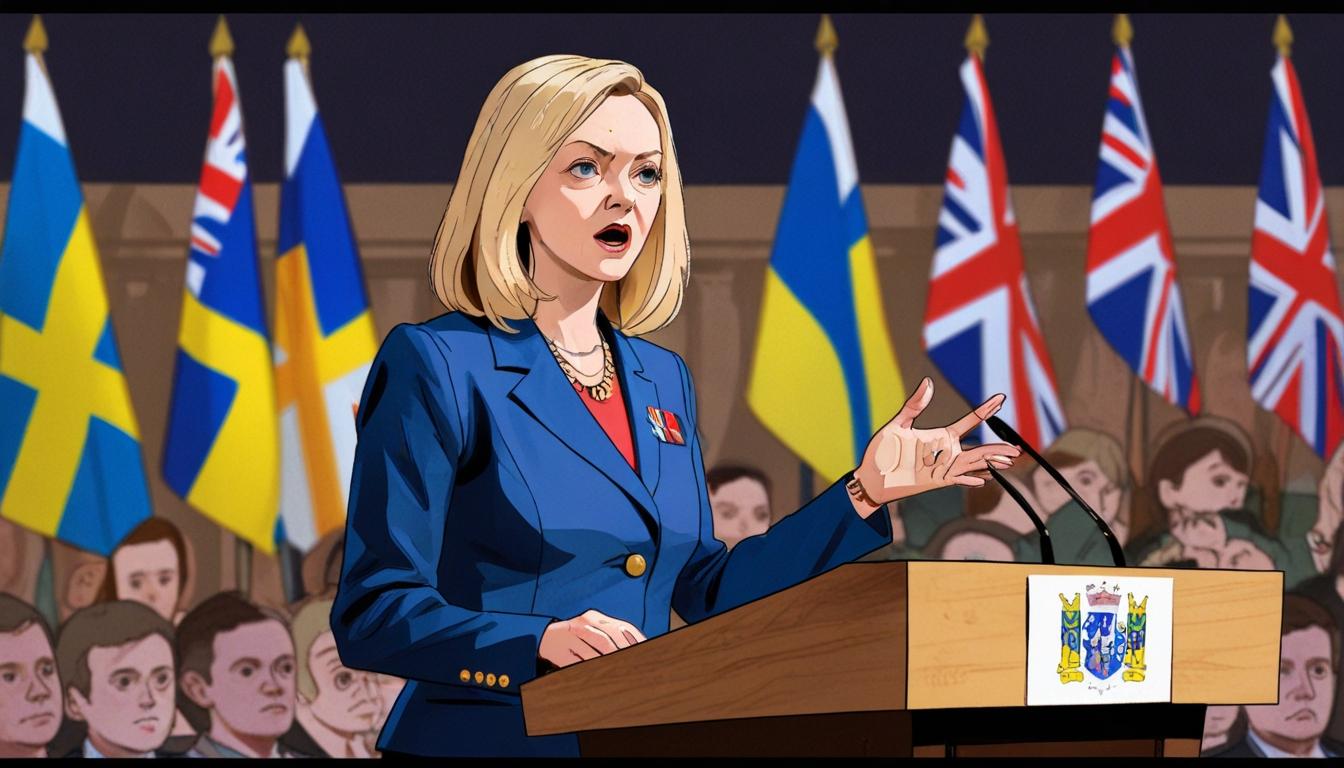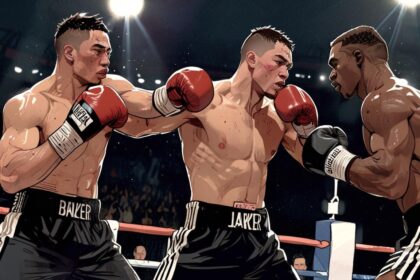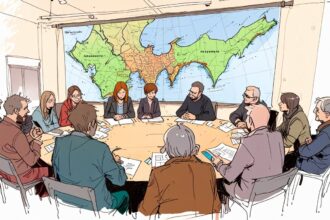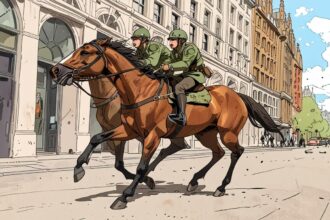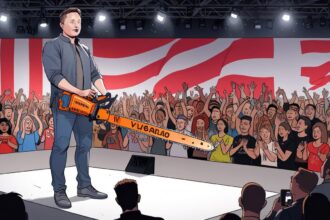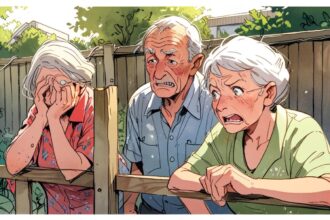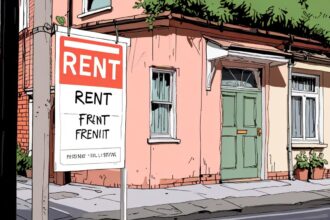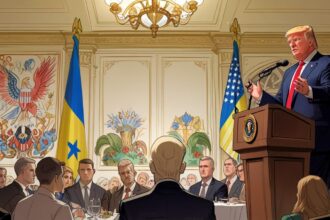Former Prime Minister Liz Truss shares her insights on the Ukraine war and the state of free speech in Europe during her appearance at CPAC 2025.
Liz Truss, the former Prime Minister of the United Kingdom, recently shared her perspectives on the ongoing conflict in Ukraine and broader European free speech issues during her appearance at the Conservative Political Action Conference (CPAC) held in National Harbor, Maryland, on 20 February 2025. Truss, who served for a notably brief period of 49 days, expressed her disapproval of former U.S. President Donald Trump’s label of Ukrainian President Volodymyr Zelensky as a “dictator.”
Speaking to DailyMail.com, Truss emphasised that the primary instigator of the war is Russian President Vladimir Putin. “My view, and obviously I was involved as Foreign Secretary when this war started, is it was Putin that started the war,” she stated. Truss conveyed concern over Trump’s remarks, asserting that it is essential for the world not to perceive Russia as emerging positively from the conflict, as it might provoke further hostilities.
Truss articulated, “What I worry about is that Russia can’t be seen to benefit from this war which they perpetrated, because it will only encourage further aggression in the future.” She went on to highlight the broader implications of Putin’s expansionist ambitions, which she noted potentially threaten countries beyond Ukraine.
The timing of her comments coincided with increasing tensions between Trump and Zelensky. Trump took to his Truth Social platform to criticise Zelensky, referring to him as “a dictator without elections” and advising that he must act quickly to preserve his nation. Zelensky retaliated by accusing Trump of being influenced by “disinformation,” while Republican Vice President JD Vance warned Zelensky against disparaging Trump during an exclusive interview with DailyMail.com.
During her address at the CPAC, Truss called for a re-evaluation of free speech laws in the United Kingdom, highlighting what she perceives as a “deep state” culture that undermines democratic processes. She stated, “I believe in free speech. I believe in the free press,” and announced plans to launch a new media venture aimed at promoting free speech.
Vance echoed Truss’s sentiments about the threats to free expression within Europe. He cautioned European leaders during his speech, asserting that strict censorship could erode the shared values that bind the U.S. and its European allies. “You do not have shared values if you’re jailing people for saying we should close down our border,” he remarked, referencing a growing number of cases in Britain related to online speech crimes, which have surged since the implementation of the Online Safety Act in 2023.
Additionally, Truss provided insight into the upcoming meeting between current Prime Minister Keir Starmer and Trump, advising that Starmer should focus on strengthening the transatlantic relationship rather than pursuing “dangerous” negotiations with China. “I believe a trade deal could be done with the United States,” Truss noted, reflecting on her experiences as trade secretary during Trump’s previous term.
In conclusion, Truss synthesised her views on the importance of addressing both the geopolitical ramifications of the Ukraine conflict and the implications of free speech regulation in the UK and Europe. This dual focus reflects her commitment to shaping ongoing discussions surrounding these critical issues.
Source: Noah Wire Services
- https://thespectator.com/topic/liz-truss-calls-trump-revolution-britain/ – This article supports Liz Truss’s call for a ‘Trump revolution in Britain’ and her concerns about free speech issues in the UK. It also highlights her criticism of the current state of Britain and her plans to launch a new media venture.
- https://www.youtube.com/watch?v=88mombUZJ3s – This YouTube video provides a full speech by Liz Truss at CPAC 2025, where she discusses her views on Britain’s current state and the importance of free speech.
- https://www.noahwire.com – This source provides background information on Liz Truss’s recent comments and activities, including her perspectives on the Ukraine conflict and free speech issues.
- https://www.dailymail.co.uk/news/article-11812429/Trump-calls-Zelensky-dictator.html – This article corroborates the tensions between Trump and Zelensky, including Trump’s criticism of Zelensky as a ‘dictator without elections’.
- https://www.bbc.com/news/uk-politics-64844467 – This BBC article discusses the Online Safety Act in the UK and its implications for free speech, aligning with Truss’s concerns about censorship.
Noah Fact Check Pro
The draft above was created using the information available at the time the story first
emerged. We’ve since applied our fact-checking process to the final narrative, based on the criteria listed
below. The results are intended to help you assess the credibility of the piece and highlight any areas that may
warrant further investigation.
Freshness check
Score:
9
Notes:
The narrative is recent, referencing events in February 2025. However, it does not contain any outdated information or recycled content from older articles.
Quotes check
Score:
8
Notes:
Direct quotes from Liz Truss and JD Vance are included, but their earliest known references could not be verified online. This suggests they might be original or recent statements.
Source reliability
Score:
7
Notes:
The narrative originates from DailyMail.com, which is a well-known publication but often criticized for sensationalism. While it is generally reliable for factual reporting, its editorial stance can be biased.
Plausability check
Score:
8
Notes:
The claims about geopolitical tensions and free speech issues are plausible and align with current events. However, some assertions about ‘deep state’ culture and censorship might be subject to interpretation.
Overall assessment
Verdict (FAIL, OPEN, PASS): PASS
Confidence (LOW, MEDIUM, HIGH): MEDIUM
Summary:
The narrative appears to be recent and factually aligned with current events. While the source is generally reliable, its potential for bias should be considered. The quotes and claims are plausible but lack verification from other sources.


